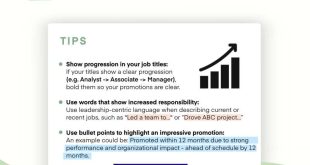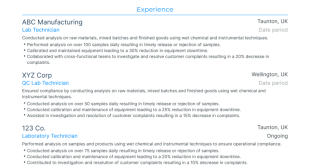How To Become An Rn In Ca – Are you looking to start a career as a registered nurse? Is becoming an RN the right choice for you? In this career guide, we explain the job of a registered nurse, what they do, where they work, salaries for registered nurses and how to become a registered nurse.
A registered nurse (RN) is a licensed health care professional with at least an associate’s degree or diploma who provides skilled patient care. Registered nurses have graduated from an accredited school of nursing and successfully passed the NCLEX-RN. Registered nurses are employed in many different settings, from emergency care, operating rooms, private clinics or community health services.
How To Become An Rn In Ca
Nurses are important professionals and members of the health care team. In fact, nurses are consistently voted the most trusted and honest profession in the Gallup poll every year. Registered nurse (RN) was also ranked as the 19th best occupation in the latest US News list of the 100 best jobs in the US, while two nursing professions made the top ten.
Perfectinsoy The One Where I Become A Nurse Wine Glass With Gift Box, Nurses Gifts For Women, Nurse Student, Practitioner, Sister, Colleague, Friend, Neighbors, Rn Nurse Presents, Graduation Gifts
The median nursing home salary for registered nurses in the United States is $80,010 or $38.47 per hour. Level of education, experience, position, employer, and location are factors that determine how much RNs can earn. A newly trained registered nurse can expect to earn between $45,000 and $60,000 per year.
There is wide variation in the average salary for nurses between states with the highest average in California at $120,560 and the lowest in Puerto Rico at $35,600. But don’t forget that wages are also affected by the cost of living between different countries and between urban and rural areas.
If you are wondering how long it takes to become a nurse, or how long a nursing program takes, you should understand that there are different ways to obtain a nursing degree that qualifies you for licensure. Students can take anywhere from 1 to 4 years to earn a bachelor’s degree in nursing, depending on the type of education. They are discussed in more detail below.
So what kind of education is required to become a registered nurse? To become a registered nurse, you must complete a nursing program at an accredited school of nursing and pass the National Council Licensure Examination (NCLEX-RN) for licensure (legal authority to practice nursing).
Nurses On Life And Work During Covid
Nursing degree programs are hospital-based educational programs and typically last one to three years, depending on the curriculum. The first nursing schools established to train nurses were graduate programs, and many nurses working today received their basic nursing education through these programs. The number of graduate nursing programs has declined slightly in recent years as most institutions require at least a two-year ADN.
Currently, the Associate Degree in Nursing (ADN) is still the most common route for nurses to qualify. An associate degree in nursing usually takes two years to complete. These courses include basic science, social science, nursing theory and nursing practice.
In 2010, the nursing profession set a goal that by 2020, 80% of the RN workforce would have a Bachelor of Science in Nursing (BSN) qualification or higher. The Institute of Medicine’s “Future of Nursing” report states that nurses should obtain advanced degrees. education in relation to the development of the health system. Recommendations by various nursing associations that the entry level for the profession be at the baccalaureate level have led to an increase in the number of BSN programs, and some employers have higher pay rates for nurses with a BSN degree than those with an ADN or bachelor’s degree. . A BSN degree gives you many opportunities for advancement, including careers in nursing administration and management. A BSN degree is also required as the first basic certificate if you wish to practice nursing or wish to study for a master’s or doctoral degree in nursing.
There are three ways you can earn a Bachelor of Science in Nursing (BSN): traditional baccalaureate programs, accelerated BSN programs, and RN to BSN graduate programs.
Rural Community Route
Baccalaureate programs typically last four years and are available at colleges and universities. This course is very in-depth and includes the liberal arts, sciences, humanities, nursing research, nursing theory and nursing practice.
If you already earned another degree before deciding to become a nurse, you can enroll in an accelerated BSN program, which is usually completed in about two years. Accelerated BSN programs (also known as “second degree” or “fast track” BSN) have been offered by some nursing schools to address the acute shortage of registered nurses. Accelerated nursing programs are rigorous and have a modified curriculum designed to shorten the time needed to gain clinical experience. It usually includes summer courses, so there are no breaks between semesters.
If you are a licensed registered nurse with a degree or diploma and want to continue your education to a BSN, there are BSN graduate programs that you can complete. If you can’t study full time for four years, many nurses are still eligible to earn a BA or ADN and go on to complete an RN to BSN program while being employed as a nurse. RN to BSN programs are available for some time, including online, and some employers have programs to help nurses earn a BSN that way. RN to BSN programs typically last two years.
After you finish your nursing studies and get your degree, you still need to apply for a license from the state board of nursing where you want to work. Nurses must pass the National Council Licensure Examination for Registered Nurses (NCLEX-RN), administered by the National Council of State Boards of Nursing (NCSBN), to obtain a license and practice as a registered nurse. The NCLEX-RN is a computerized practice test that asks questions until the computer is confident that you can provide safe and effective nursing care.
How To Become A Nurse Practitioner
Each state board of nursing has its own requirements that you will need to check. They all make sure that the required coursework has been completed at an accredited institution and review the applicant’s background. This may include a background check.
Registered nurses in hospitals or other areas of the hospital care for their patients 24 hours a day. In comparison, some health professionals only contact their patients or treat them for a limited time. RNs have different levels of autonomy and responsibility in different areas, providing direct care, educating clients and the people they support, acting as advocates, and helping to shape policies that affect health in communities or hospitals.
In outpatient health facilities, registered nurses are often the first point of contact for a patient. Here, nurses can provide health care themselves or, if necessary, refer the patient to another health care provider.
The duties described below apply wherever the RN works. The specific duties of a nurse, however, will vary between different professions and different health care settings.
Registered Nurse: Occupations In Alberta
One of the benefits of being a registered nurse is that you have a variety of settings to choose from. Although many registered nurses work in hospitals, nurses do not always work in hospitals.
As a registered nurse, you can choose to work as a hospital nurse, school nurse, long-term care nurse, nurse instructor, flight nurse, travel nurse or home care nurse, even a cruise ship nurse! Every nurse has the opportunity to develop their career according to their interests, personality and strengths. Changes in career direction can also be made according to the changing needs of personal and family life. Nurses who work for non-health care employers include school nurses and registered health nurses. Then there are nurses who work as nurse educators in colleges and universities and as consultants to the government at government departments or other levels.
There are many career advancement opportunities if you want to specialize in nursing. Registered nurses may specialize in a specific area of care. Other types of RNs are:
You can also pursue additional education to become an Advanced Practice Registered Nurse (APRN) and work toward your certification. APRNs have at least a master’s degree in nursing. Some examples of APRNs are:
The Fastest Paths To Becoming A Nurse
Let’s look at the pros and cons of being a nurse so you can make an informed decision if you want to pursue a career in nursing.
Although today’s registered nurses require a very high level of knowledge and skills, it is still a job! Nursing is both an art and a science. Nursing school and being a nurse will have challenging days, but it’s all worth it! He sees people at their lowest and has the ability to lift them up. And despite the challenges, many nurses report high levels of job satisfaction and wouldn’t trade their jobs for anything. If you think nursing is for you, take the next step and apply for admission to a nursing school—perhaps one of the top 100 nursing colleges in the US.
Matt Vera, a registered nurse since 2009, uses his experience as a former student dealing with problems
How to become an rn, how to become an rn in texas, how to become an rn in nyc, how to become an rn in ny, how to become an rn in florida, how to become an rn online, how to become an rn in canada, become an rn in one year, how to become an rn in pa, how to become an rn in georgia, how to become an rn in nj, how to become an rn in illinois



